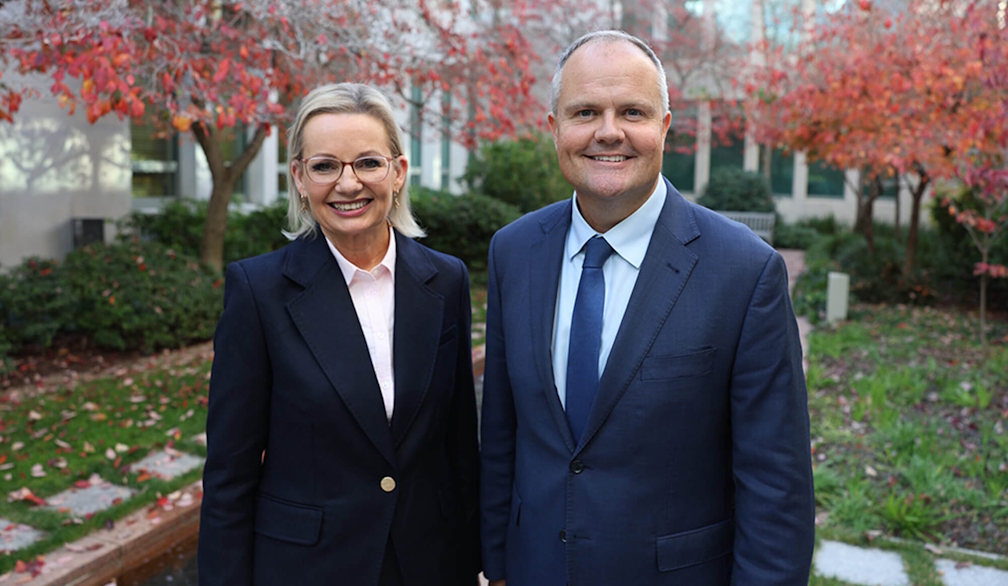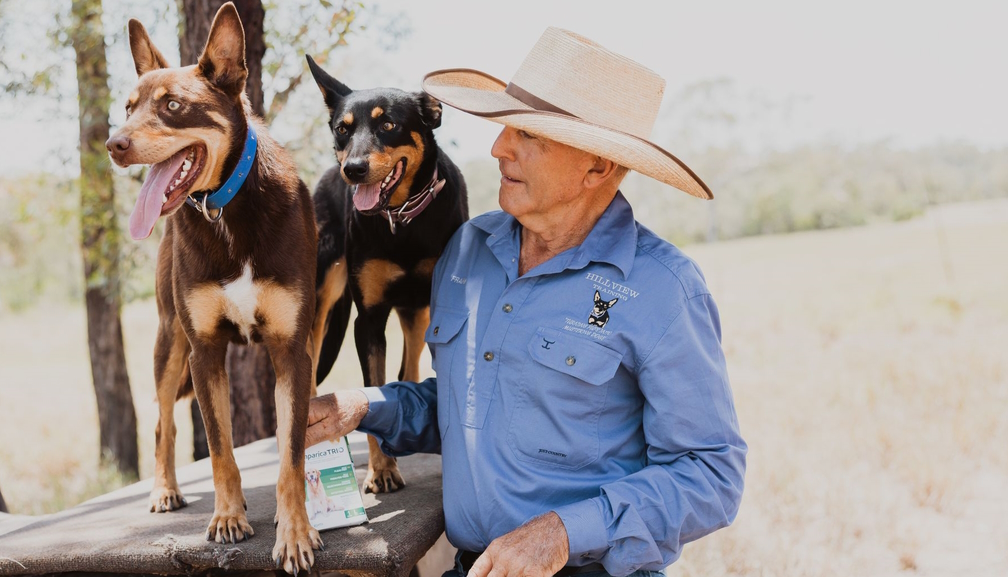Business Council's Jennifer Westacott's interview with David Speers

David Speers, host, Insiders: Jennifer Westacott and Sally McManus, thank you both for joining us this morning. Sally McManus, let me start with you on this idea of multi-employer bargaining. You've seen some of the reaction to the idea in recent days. Just clarify for us, are you talking here about across the board, multi-employer bargaining? Or are you only talking about it in defined sectors, the ones you've referenced, aged care, child care, and so on?
Sally McManus, secretary, Australian Council of Trade Unions: Yeah, look, thanks, David. I reckon it's really important to understand what's gone on with our employment landscape. 30 years ago, we had mountains and some hills and bargaining power because people were more unionised. Now we've got mountains and half the workforce is on plains, and they don't have any bargaining power. Basically, workers’ bargaining power has been smashed over that period of time. And that's the reason why we've got a problem, a huge problem with wages growth, and unless we address that issue, that's not going to change. So, what we'd like to see is for those people who can't access, they're not on those mountains, they're not going to access bargaining, they need options and flexible options. So multi-employer bargaining, or sector bargaining, it should be simple, it should be fair, it should give those workers that bargaining power they need to actually get pay rises again.
David: So just to be clear on this, though, you say it could also apply to construction and mining and ports, and so on? Or only those sectors you've defined?
Sally: Listen, we think it should be open to all but obviously a lot of places, like you talk about some of those, they're getting pay rises at the moment. They can access the bargaining system, some of them are on those mountains. I mean, we've got to fix it for them as well. But, you know, the system was never designed for people in small workplaces, people in funded services, people like those cleaners, and it just needs to be upgraded and suit the economy of today, not the economy of 30 years ago.
David: And just one more point of clarity here, you are saying there needs to be the power to strike, for workers at one business to strike and support workers in another business?
Sally: Not in support of workers in another business, together. So, it's a normal part of bargaining to have the option as a last resort to take industrial action and that's what happens in countries that have, obviously, multi-employer bargaining and there's not more strikes, there's more pay rises. I mean, essentially, when workers have an option to do that, obviously, it means they're more likely to get a better outcome and get that better outcome quickly.
David: Jennifer Westacott, what do you think of this idea?
Jennifer Westacott chief executive, Business Council of Australia: Look, I understand the problem that Sally is trying to solve. There are many people in low paid jobs, many of those sectors have got predominantly women in them, and they have not benefited from the bargaining system. My concern is that at an industry level, we try and fix one problem and end up with lots more. So, I’ll just briefly go through our concerns. The first is driving innovation and productivity, which is actually the key to driving higher wages. So, most of that happens at an enterprise level: people sit down with their workers, they adopt new machinery, they do training, they work out processes, they look at their markets, they look at their customers, and they do that together. So, if you're a small manufacturer in Bendigo, suddenly to have your wages and conditions set by a manufacturer in Tasmania or Adelaide, how's that actually going to work to drive innovation? My second concern is the risk that it actually lowers things because people work together and you end up with lowest common denominators, and people's wages don't go up. You want competition for people, you want to offer people the best conditions. My third issue is, if you look at this across industries particularly in the care sector, many of these industries need innovation to give better patient care, to give better services to people, and many of them are stuck in very old-fashioned demarcation areas. My next concern is this industry wide strike action. Don't forget, before the 1983 summit, we lost 1.6 million days in strike action, I know that's not Sally’s intent. And my final concern is this idea of pattern bargaining, where somewhere in the supply chain, you start a negotiation and then it moves through that supply chain and ends up with an employer who just simply doesn't have the capacity to pay that, irrespective of their workers, their markets, their customers, the amount of money they've actually got to pay. So, they are our concerns. And of course, complexity, it sounds simple but obviously we need to see a kind of proposition. I think across the economy, this would be a very risky thing to do, and have some very serious unintended consequences. What we want, of course, is to make the enterprise system better, easier, and for people to just get on and do it.
David: And just to be clear on this Jennifer Westacott, you say across the economy, bad idea, but perhaps in certain sectors?
Jennifer: Well, let's have a look at a detailed proposition. We're very concerned about it. I think our principal concern is, is this the right way to solve the very the legitimate issues that Sally's raised around people not benefiting from the bargaining system? Are there other ways to do it?
David: Would it, to use the example that Sally has put forward cleaners or aged care workers, would it give them a better chance of a better pay deal?
Jennifer: Well, let's see how this works. Let’s see what the proposition is but don't forget many of these sectors, leaving aside cleaners, you know, their principal constraint is actually the fact that 70 cents in every dollar is paid for by the government. We already have of course, a big, aged care decision in front of the Fair Work Commission. So, I guess my concern is, let's be super clear: what is the problem we're trying to solve, what's the best way of solving and what's the way of solving it that doesn't end up with a whole lot of unintended consequences that pull the economy back, and ultimately lead to low wages and higher unemployment?
David: Alright, Sally McManus, just a quick response on those concerns that Jennifer Westacott has raised and whether there's more clarity you might be able to provide on the detail?
Sally: Actually, it's very simple. I mean, if you're in somewhere like a childcare centre, the idea that you can just bargain with your individual management committee and improve wages for yourself, let alone for all childcare workers is obviously not practical, and it's not happening. They deserve the same rights as everyone else. I know, Jennifer talks about people sitting around and talking about innovation and productivity and I know, for a lot of her members, that that probably is happening but I can say across the economy, it is not happening. That's not what the discussions are. Sometimes when employers say we want to talk about productivity, what they mean is working harder for less. Now, Jennifer doesn't mean that and that's a really good thing because we want to have a different discussion about productivity. That's really not what's happening. And the thing is that we have not seen pay rises in this country, real wage pay increases, for 10 whole years now. There's been plenty of time for employers to give people pay increases, but they've not. And it's not fair to have whole sections of the economy, more than half, totally locked out of collective bargaining.
David: Let's talk about enterprise bargaining because a couple of years ago the two of you came pretty close to agreement, maybe perhaps even had an agreement, on a way to improve enterprise bargaining, which has been gradually dying in Australia. The idea was that you could fast-track agreements through the Fair Work Commission, waiving the better off overall test, if they were union negotiated agreements. Other business groups didn't like it. And it hit a dead end. Jennifer Westacott, to you first on this, is this an idea that you're keen to revive or indeed build upon at the summit?
Jennifer: Well the first thing is, let me just say that Sally and I are absolutely on a unity ticket that we want people to be paid more, and we want those wage increases to be sustained. And enterprise bargaining, if done well, and you look at the data, you look at the long run averages of wages, people on enterprise agreements get more money, they get substantially more money. So that's the starting point. Look, I think the principles that Sally and I negotiated a couple of years ago, are basically the ones that we should take forward. Don't get rid of the better off overall test, make it better, make it about better off overall not better off in every single circumstance. Get rid of this idea of hypothetical workers, make sure - and this is the crucial thing - that when the parties agree, when they've negotiated in good faith, when they follow the proper processes, that the Fair Work Commission does not then try and rewrite and micromanage that agreement, make sure that people who haven't been party to the agreement can't come in at the last minute and blow the agreement up. And finally, and this is really important, David, where you've done all of that, that enterprise agreement should replace the award. So, you get rid of this tremendous complexity that’s in the system where you've got National Employment Standards, that's right that's the safety net, then you've got an award, then you've got an EBA - that's just too complex. And so, we want to see that we restore enterprise bargaining, we get the overall back, and we use it as a way of making sure can replace an award. And that's what the Hawke and Keating plan was originally designed to do.
David: Sally McManus?
Sally: Yeah, so the idea of bargaining being simple and fair is something that we both support and those are the principles, absolutely. And just where Jennifer left off about the Hawke and Keating enterprise bargaining system, I think we can get very close to that and maybe even do better and making it really simple. It's got to be simple for workers, and simple for employers. The thing that's different is the better off overall tests, we moved away from what was called a no disadvantage test because some employers were rorting it. They were using it to cut wages and then have unfair competition with other employers. We had to change that to make sure that bargaining is about going forward. So, I reckon we can make that simpler as well. We should aim simple and fair for everyone.
David: So Sally McManus, the better off over all test, keep that or waive that in some circumstances or tweak that, so it's not including these hypothetical worker examples?
Sally: Listen, for us simplicity is always balanced with fairness. And I think that we can achieve simplicity and then build in very easy safeguards to make sure that people don't go backwards, you maintain the fact that it's better off overall, but you don't hold up agreements for ages, because there's complicated things that they've got to consider.
David: This is important, just to be clear here. So you're both saying you want to go to this summit reviving that deal from a couple of years ago, which will change the better off overall test, you're seeking to progress this at the summit?
Jennifer: Well, we’re seeking to progress the key principles. And the fundamental principle is making, to Sally’s point, it's simpler, it's easier, it's accessible to a wider range of people. And that is about the overall and fundamentally about the parties to the agreement. If they've agreed, let's just get on with it.
David: The gender pay gap. It's been widely in the last couple of years, according to Treasury women earn less than men in full time roles in every industry. The government wants to require every company with more than 250 employees to publish their gender pay gap, and also the pay equity and objective of the Fair Work Act. Is that enough Sally McManus, to fix this problem?
Sally: Well, the other thing they announced during the election was changing the way that equal pay cases work to fix them because they're not they're not working at the moment. The big problem we've got is that Australia's got a really gender segregated workforce. And so you've got a lot of women concentrated in the care industry and that as a society, we've undervalued that work, we've effectively, unconsciously or otherwise said because this was done at home for free, we're not going to now properly value aged care, childcare, disability care. And so we've got to change the laws, if we're going to allow those jobs to be properly valued.
David: And I want to ask you two about migration. It sounds like you both support an increase in migration, particularly skilled migration. How much of an increase Jennifer Westacott?
Jennifer: We've sort of called for a catch up of around 200,000 - 220,000 but I think the crucial thing is, we've got to do two things here. We've got to deal with the short term issues that you've been talking about this morning, we just don't have enough people to do things but I think the real purpose of the migration part of the summit is not to focus on a number but to focus on what we want the role of migration to be, which is bringing in the skills that are going to allow us to go to what I call the frontier economy. You know, the economy that is at the cutting edge of technology of decarbonisation, new industries, like space and defense and manufacturing. We will need to bring in the best and brightest people from around the world to come in and transfer their knowledge and drive innovation. And, of course, we have to do that well managed migration and the stuff you've been talking about this morning, you know, planning for housing release, planning for schools, making sure we plan for regional development. So, all of that needs to be done. I think that's the job of the summit, is to reset the migration settings, make sure that that works in tandem with the skill system here where we're skilling Australians, not to have you know, just to focus on the number but what's the function of migration in a modern prosperous economy
David: Okay but in the short term a 220,000 intake, Sally McManus, what were you looking for?
Sally: Well, we've said a bit less than that, but you know, around the same figure. But for us, the issues are needing a plan to address wages and needing a plan to address skills. So, going to the point Raf was talking about before, like it's skilling up people locally as well. And problem is, we're dealing with a decade of neglect in this area. And so, you know, if out of the Jobs Summit, we've got a clear plan in terms of what we're going to do for skills and investing in training up the next generation of sparkies, for example, if we're going to kill a plan to address the issue of wages, will then you know, having more permanent migration rather than just temporary migration, you can see that there'd be a way to go forward.
Jennifer: I think the other thing David, that Sally and I agree on is that migration should be longer term. Not so much of a reliance on these two year visas, but moving to those four year visas and permanent pathways. I think we’re all on the same page on that. And then of course making sure the skills system works properly.
David: Well, just on that so you're both issued this consensus around some principles on skills and training, a few things there. You want the government to be spending more in the October budget on apprentice wage subsidies. Jennifer Westacott, why is that important? And what's business prepared to spend here to improved skills training?
Jennifer: Yeah, lets just take what we've announced this morning. So, it's not just apprentices but we've got to fix the vocational system, the TAFE system has been under-invested. That has not been working effectively. We've got to make sure that Jobs and Skills Australia gets established. In many respects what we've written today is that it is a job description for Jobs and Skills Australia, we've got to get apprenticeships going again, not just in the in the sparkies and trading area trainees area, but things like digital apprentices. Now, you know, companies are very happy to step up here, very happy to step up but you do need some higher level of wage subsidies, particularly for small businesses. The other thing we're calling for is that we have got to get a system where people can do lifelong learning, where they can get microcredentials, where they can stack stuff up, where they can get skills more quickly, without having to go back and do a three year TAFE course or a three year university degree. So they can get things more quickly, they can keep their skills current. That's what we really need to do with skills. Now, what are we willing to do? One of the ideas we put up at the summit is this idea of a Trusted Trainer, so that it if you're a company that can show that you're investing in training, that you're developing your people, you're testing the labour market, that you should be able to kind of get an easier path to getting skilled migrants in and maybe a lower skills levy because you can demonstrate that you're investing in the development of your people.
David: Sally McManus, let me ask you finally on issue of skill and training, there’s a lot of calls on the budget at the moment, government is being asked to do more on helping the unemployed, who are living on $46 a day, there's you know, aged care workers and so on. Why should more apprentice wage subsidies be a priority?
Sally: Well, because apprentices are paid appallingly and we're not attracting people to do those jobs because they can't live on those wages. So you know, that's something that's needed if we're going to be able to, you know, move to renewable energy, for example. We absolutely need to address that particular issue and address investing in TAFE and VET, is part of productivity, it is part of how you become a more productive country is by investing in people so that they can use skills.
Jennifer: And also David, people aren't completing apprenticeships, so they might do it for a year but then the wage is not enough so they drop out and then they don't get that qualification.
David: And that’s why you talk about this bonus payment for completing an apprenticeship. We will have to leave it there but thank you both for joining us this morning. Jennifer Westacott and Sally McManus.








